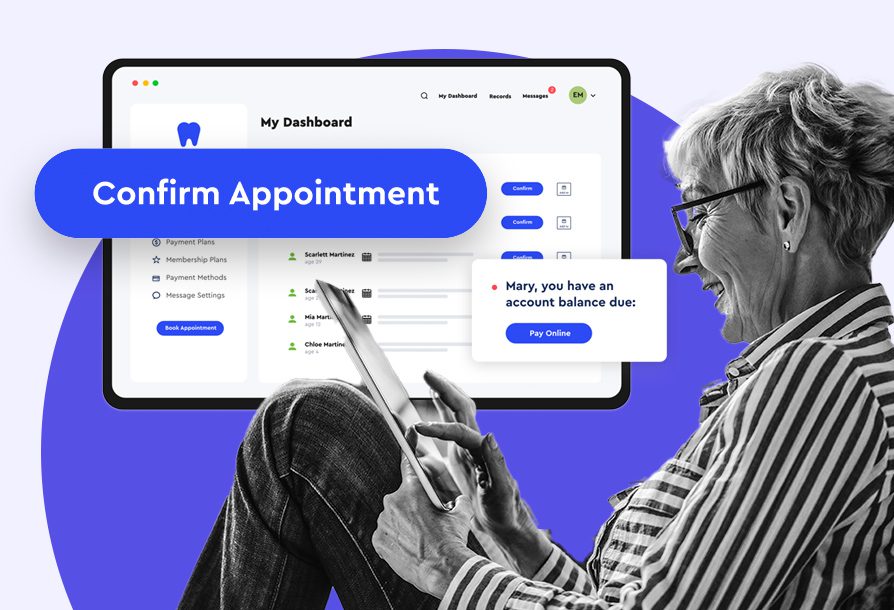"I’ll Think About It"
How to close the case when patients are shutting down

Whether you are the doctor, hygienist, dental assistant or patient care coordinator, you’ve probably had many treatment plan presentations that ended, with the patient saying “I’ll think about it”. On the surface, it seems reasonable. We all need time to process and consider the many factors that go into our healthcare decisions. But we have all seen those patients leave our offices and never return. If they are new to the practice, they may not respond to the team’s attempts to contact them and that usually means that we have lost them as a patient. So what can we do to help this patient stay engaged with our office? It all starts with understanding what the patient wanted most when they appointed to see you. Did we listen to their concerns and communicate them between team members? Did we refer back to their concerns as we explained the treatment? If we have done these things, and the patient tells us they “will think about it”, there is a very high likelihood that there is an issue that they are not comfortable discussing with you. In my experience, the issue is usually trust or money and there is no better time than that very moment to ask a few simple questions to help clear any potential objections to treatment. Here is an example that can help you navigate situations like this and help patients appoint for the care that they need.
“Mr. Smith, when can we schedule the treatment that Dr. Manns has recommended?” “Let me think about it” “Sure Mr. Smith. Could I ask you if there is anything in particular that you will be considering so that I can provide you with the information that you may need?” “Oh I don’t know I just need to think on it.” “I understand Mr. Smith. It is very important to us that every patient is comfortable with his or her treatment recommendations before proceeding. Often, patients find it difficult to discuss matters of trust and or money with their dental providers. Is either of these a concern of yours?”A. “Well yes, I just do not know if I can afford the treatment.” “I appreciate you sharing this with me. Do I have your permission to ask Dr. Manns if he can help prioritize the needed treatment and then you and I can schedule a consult to discuss how we can make your care fit your budget? How does that sound?” B. “You know, it is hard to trust a new doctor after all those years with my old doctor. I can understand that and want you to know that we will work very hard to earn your trust at every appointment. Is there any information that we can provide that can help you to feel more comfortable with your decision?”
At this point in the conversation, many patients will feel mostly resolved about the trust issue simply because you validated their uncertainty. The same may be true regarding financial concerns and most patients can agree to care that fits into their budget. Trust and money do not need to be obstacles to treatment acceptance if you face them openly and honestly with your patients. Keep the conversation open and let the patient know that you have helped many patients with similar concerns. If they do not appoint before leaving, be sure to ask if you can contact them in a couple of days to follow-up. It is important to ask how they would like to be contacted i.e. telephone or email; and then, follow-up when you said that you would.
Automate the Follow-up
If you track patient follow-up calls through a dashboard program like Practice By Numbers, you will be able to easily identify the patients that you need to contact to schedule treatment and recall visits. The program gives you instant access to accepted and unaccepted treatment, keeps track of contacts made and schedules tasks for follow-up. Notes regarding conversations can be logged so that all team members can have access to the results of conversations held with the patient regarding treatment concerns. Practice by Numbers even sends a report card to the doctor and practice manager showing them the attempts made to schedule patients and the success of their efforts.

Before you let another patient walk out the door to “think about it”, try to use the verbal skills shared in this article to keep the conversation open. You will convert more treatment plans to productivity and win the loyalty of the patient in the process.
Bio for J. Scott White DDS, FAGD
Dr. J. Scott White is passionate about helping doctors, office managers, and consultants discover how dashboard analytics can be used to successfully manage and grow dental practices. Scott joined Practice by Numbers after a successful 26-year career as a general dentist in Richmond VA where he owned and managed a sedation, cosmetic, implant, and rehabilitative dentistry practice with his wife, Dr. Pranee C. White. Scott has first-hand experience with the use of dashboard analytics to achieve great success in dental practices. He enjoys fly-fishing, hiking, gardening and scuba diving.

